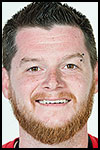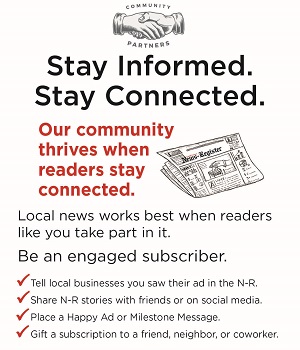Jesse James Maxwell: Finding the light
I was born Jesse James Maxwell on July 31, 1984. The site of the hospital is now occupied by a Walgreens drug store.
I was ushered into a low-income, single-parent household, and that presented extreme challenges.
My mother did the best she could with what she had, but struggled with addiction to controlled substances. Eventually, she was arrested, and it broke up the family.
My older brother, Jack, went to live with his father. The rest of my siblings were taken from the home and placed in foster care. It left me feeling angry and alone.
Fast-forwarding to my late middle-school years, I began smoking marijuana and drinking alcohol. I was consumed with anger at the lack of healthy role models in my life, having never met my father and long watched my mother struggle with her addiction.
Substances seemed to soothe my anger and hurt. They seemed to foster better social skills as well, enabling me to make friends more readily.
I began to feel what I took for relief. I started skipping school to skateboard and do drugs.
By 16, I had quit going to school altogether and begun experimenting with psilocybin mushrooms and LSD.
This was a big turning point, the biggest in my life so far. When I realized I could cover up how I felt about never having met my father, suffering with an addicted mother and feeling intense loneliness, I craved more and more.
Escaping into an alternative reality through drugs became my main point of focus.
Over the next five years, I jumped from job to job, unable to maintain consistent employment due to the fact that I was consuming drugs and alcohol so frequently I barely had a sober moment. I fathered two children, but that failed to deter me.
By now, though, recreational drugs were no longer providing relief from memories I badly wanted to bury. So I moved on to harder drugs, including meth and heroin.
This led to a couple of felony charges and several stays in the county jail. I had freely given up the things in life that most people work so hard to achieve and maintain.
The mother of my kids finally tired of making excuses for me and put her foot down.
I was unemployed. We were losing our home. And for the second time, I was barred from seeing the kids.
I tried detox and intensive outpatient treatment multiple times, but had never actually hit bottom before.
I was broken and afraid. I had no coping skills, so had no idea how to live without drugs and alcohol.
My older brother had also slid into addiction. However, Jack had entered recovery and become a certified recovery mentor at Provoking Hope, a McMinnville program dedicated to helping addicts turn their lives around.
When he walked me through the door at Provoking Hope, the real battle began.
I enrolled in an intensive outpatient treatment program again through Health and Human Services. I relapsed several times, but continued to work toward eventual sobriety.
One day in group, the counselor called an inpatient treatment facility to check for an open bed for another member. He asked if there were two beds available.
Learning there were, he looked at me and said, “You willing to go?” Four days later, I entered a 90-day intensive treatment program in Eugene.
This place featured 25 other men from all walks of life, and seemed like an emotional pressure cooker.
At first, I struggled. But my brother and my significant other were always at the other end of the phone to cheer me on and remind me I wasn’t alone.
I did some real work in there. I did some assignments that forced me to face feelings I had long avoided.
I had accumulated a lot of guilt and shame in the course of wrecking my life. I realized I had spent years trying to keep my head above crashing waves in an ocean of fear, guilt and self-hatred. But I had a rock tied to my ankles, the rock of addiction, and it was going to claim my life if I failed to break free.
I stayed, and I worked hard. Eventually, I graduated.
It was the first time I had successfully completed something, and I wanted more. So I came home and completed my intensive outpatient program. I followed up by enrolling at Chemeketa Community College to earn my GED.
I began frequenting Provoking Hope and volunteering there. I found I wanted to give back to the community I had so freely taken from for so long. And I was eventually hired there.
When I hit rock bottom in my addiction, I stumbled upon willingness.
No one thing in my life determined whether or not I would become an addict. I didn’t wake up one day and choose that way of life either. It was something inside of me I felt I had no control over.
The disease of addiction does not discriminate. Surrendering old ideas, remolding core beliefs and leaning on others are the keys to continued recovery.
I know I will always be just one bad decision from stumbling back into the life. I stay vigilant, because addiction will always hover on the doorstep.
To those struggling with addiction, or have a partner who is, I urge you to continue the fight. Don’t lose hope, as recovery is always possible.
There is a light inside all of us, as long as there is a breath left in our body. That light has the potential to shine bright, and it always shines brightest in the darkness.














Comments